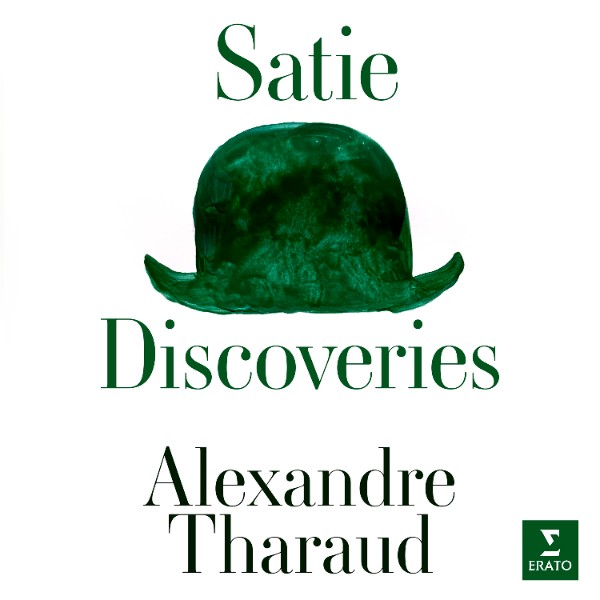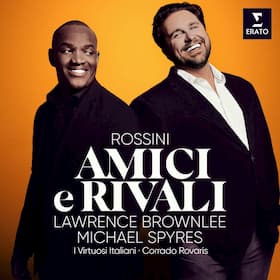
© Presto Classical
In the competitive operatic CD landscape, the frequent “best of” or “highlight” recordings have become a repetitive and uninspiring drag. Erato’s just released “Rossini: Amici e Rivali” featuring Lawrence Brownlee and Michael Spyres stands out not just thanks to its unmissable orange and black cover featuring the two tenors. This is a uniquely thoughtful, tasteful and engaging production that invites the listener to witness extraordinary vocal feats, and serves up a riveting and rarely heard repertory that the bel canto grandmaster Gioachino Rossini had specifically written for the voice types that these two American tenors perfectly embody. Amici e Rivali could hardly match a better pair of singers.
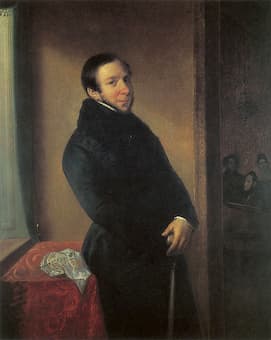
Domenico Barbaja in Naples in the 1820s
© Wikipedia
The core proposition centers around the use of two tenors portraying the friendships and rivalries of these Rossini operas, a tradition that later gave way to the dominant tenor-baritone pairings of the operas from the romantic period.
Other than the first track from the Il Barbiere di Siviglia, the selections will not be widely known to casual opera lovers. The producers have largely chosen pieces from Rossini’s opera seria, written during the composer’s formative Neapolitan years (1815-1820) while he was working with the legendary impresario Domenico Barbaja.
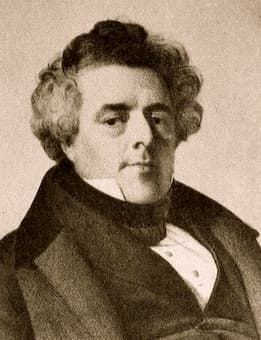
Andrea Nozzari in later life © Wikidata
Michael Spyres impressively demonstrates how the bel canto tenors often stretched their Fach to the baritone register. In the well-known duet All’idea di quell metallo, he convincingly sings the baritonal Figaro opposite Brownlee’s very lyrical Almaviva. Spyres explores many of the roles that were premiered by Andrea Nozzari (1776-1832), whose voice was commonly understood as a “baritenore.” Nozzari’s range was such that he was even contracted to sing bass-baritone roles for his impresario, not least the title role in Mozart’s Don Giovanni.
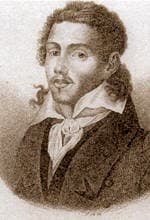
Giovanni Davide © Wikipedia
Lawrence Brownlee assumes many of the roles that were written for Nozzari’s Bergamasco colleague and competitor Giovanni Davide (1790-1864). Davide, who French novelist and opera aficionado Stendhal considered the “greatest tenor of Italy,” was considered technically perfect, but also utterly free of emotion. The former is amply demonstrated here; the latter cannot be said of Brownlee, who imbues his interpretations with refreshingly audible verve and expression; one can almost see him emoting.
The selections from Ricciardo e Zoraide are a particular delicatessen. This is an exceedingly rare opera, and the four tracks showcase just how stunningly these two voices blend. Spyres and Brownlee deliver spotlessly clean coloraturas, arresting rubatos and dizzying top notes.
Rossini’s Otello is represented with three tracks including the recently popularized Otello/Rodrigo duet Ah vieni, nel tuo sangue. The scene demonstrates the extraordinary vocal agility, counterpoint bravado, and disarming range of these singers, with Spyres throwing in a white-knuckle high D (video below at 2:18) ! The two duelling tenors are then joined by Desdemona in the spirited terzetto Che fiero punto e questo.
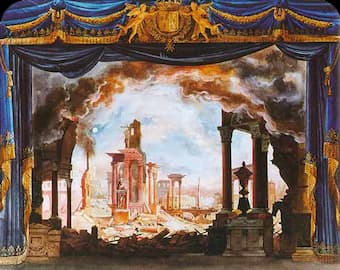
Set design for the opera Le siège de Corinthe, Paris, 1826.
© Wikipedia
The sections from Le Siège de Corinthe are an interesting choice, the opera being written for Paris in 1826, well past the composer’s Neapolitan years. Rossini, who frequently reused older musical material, reworked much of his opera Maometto II into the new score of Le Siège de Corinthe. While Maometto II, which he had written for Barbaja in 1820, bombed at the Teatro San Carlo in Naples, Le Siège de Corinthe was a success at its Paris Opéra premiere.
Other tracks selected are from La Donna del Lago, Elisabetta, and Armida, all operas worthy of more popular rediscovery. The one questionable choice on this CD is the inclusion of the Act III, Scene 4 Cher Cléomène from Le Siège with its dragging recitatives which add little to this remarkable collection.
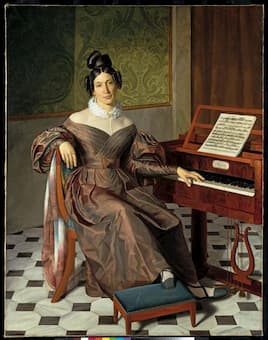
Portrait of Isabella Colbran by Johann Baptist Reiter (c.1835) © Wikipedia
It is worth noting that the real dream team of Rossini’s Neapolitan years was not actually Nozzari and Davide, but Nozzari and the prima donna Isabella Colbran (the future Madame Rossini), who headlined the premieres of every opera seria this CD features, including the failed Maometto II (but not Le Siège de Corinthe). The tenors are ably assisted by mezzo-soprano Tara Erraught (in the Colbran roles) and the promising Xabier Anduaga (yet another tenor!).
The spirited and versatile orchestra I Virtuosi Italiani is led by its principal conductor Corrado Rovaris, who injects the music with all the dynamism and energy it deserves.
Rossini lovers have long known about the musical and vocal gems in the composer’s opere serie. This new CD goes a long way to make the wider audience aware as well.
For more of the best in classical music, sign up to our E-Newsletter

